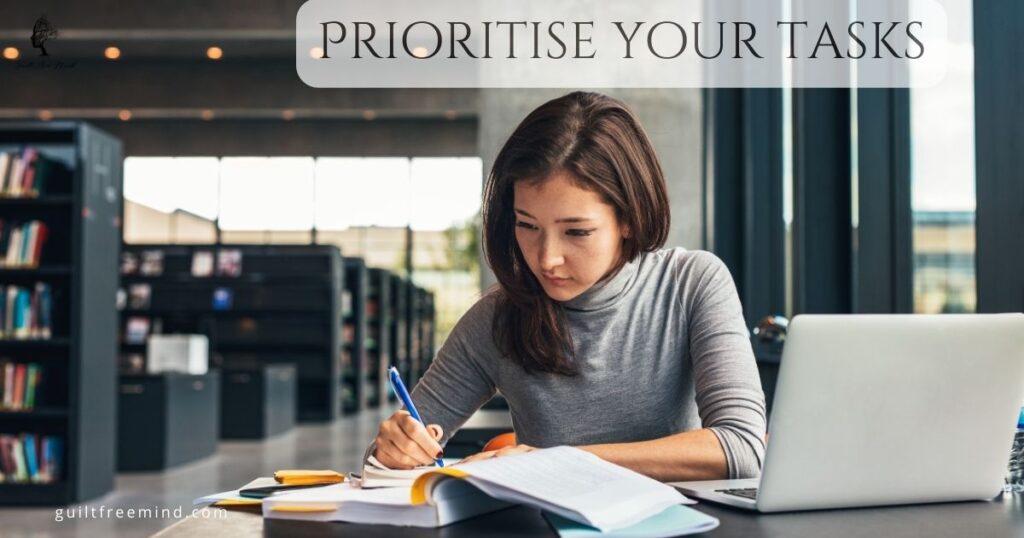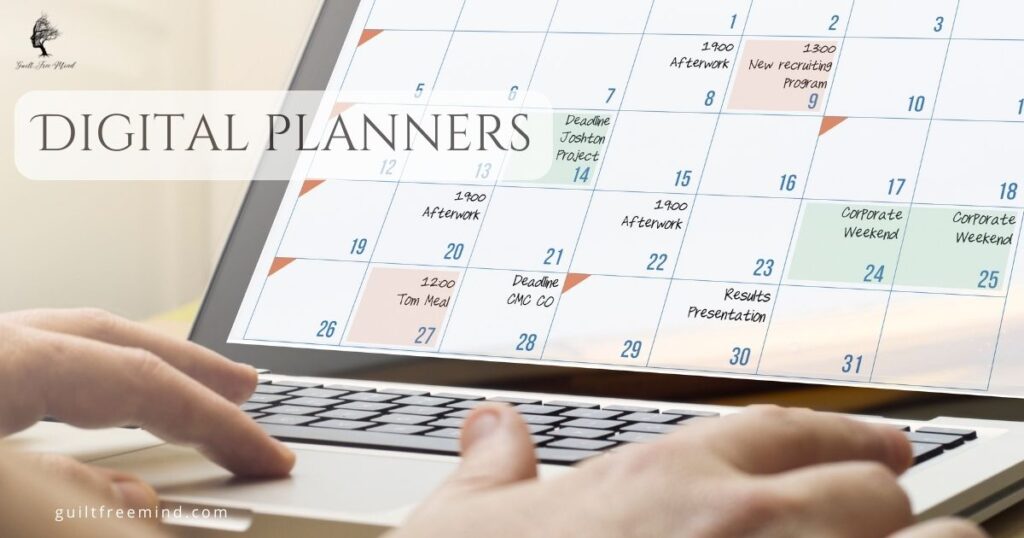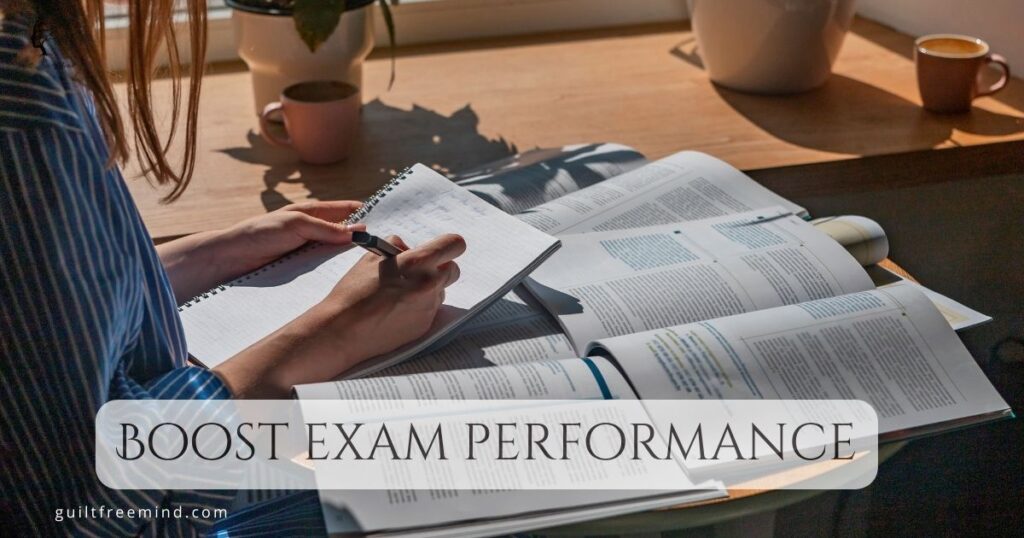The world of academia is fast-paced and every student is competing for the top spot. The most common pursuit is those of A grades and optimal performance. The students are constantly cramming, navigating through complicated subjects, preparing for their upcoming exams and trying to achieve academic success. However, with the amazing rewards, comes its own challenges. This blog post will focus on how you can boost performance to excel in your academics without experiencing a burn out.
In this article. I will not only focus on traditional methods of study but also on other holistic approaches like mindfulness, use of technology , and lifestyle choices. The purpose of this article is to arm students with a toolkit that has every strategy they need to boost performana and receive amazing grades in their academics. These will help develop a positive learning environment, promote a positive learning mindset, and allow the student to gain success with confidence.
If you wish to be more productive and lead a positive life, please subscribe to Guilt Free Mind. The subscription option is present in the sidebar. If you like watching videos, then subscribe to the YouTube channel of Guilt Free Mind. Do not forget to ring the notification bell so that YouTube notifies you the moment the next video releases from the channel.

Table of Contents
Setting the stage for academic success
Success is not wishful thinking. It is very much achievable. You just have to believe in yourself and keep working towards your dreams. Focus on not only working hard but on working smart as well. A combination of the two will make you absolutely unstoppable. Add to this mixture a bit of time management, and you are golden.
Mastering time management
Those who master time management are the gurus of getting work done. If you wish to boost your performance and take your scores to another level, this is one tip that you cannot ignore. Mastering time management is directly proportional to your academic success. It helps you get your work done on time without feeling absolutely overwhelmed or burned out. Here are some tips that will help you make your time management strategies much more effective:
Prioritize your tasks
For this you can either use the Eisenhower matrix or simply classify your tasks are urgent or non-urgent. If you are confused about the level of importance of the task and want to know how to assign priorities to tasks, make 4 quadrant and divide them into 4 sections :
- Quadrant 1 (top left) : Urgent and Important
- Quadrant 2 (top right): Not urgent but Important
- Quadrant 3 (lower left): Urgent but not Important
- Quadrant 4 (lower right): Not urgent and Not important
Once you have assigned all your tasks to one of the four quadrants, finish the tasks in quadrant 1 first. Then finish the tasks of quadrant 2. Following this, tackle quadrant 3 and then finally quadrant 4.
The benefit of using the Eisenhower matrix is that you will at least get the most important and urgent tasks out of the way. Even if you cannot get everything done on your to-do list by the end of the day, you would not be hard pressed for deadlines since you are tackling tasks as per priority.

Alternatively , you can use the ABC method where A is highest priority B is medium level priority and C is lowest priority. You start by tackling the A tasks. Following this, you tackle the tasks labelled B and then finally C.
Time blocking
Time blocking is an art that not everyone understands. Most people assign themselves less time for a task and keep it going till the work gets over even if their time for that particular task is up. My advice is that, before you start on time blocking, track your time for a week and figure out which task rates how much time. Once you know how much time to allocate to each task, then start with time blocking.
When time blocking, make subject specific blocks. Eg:- suppose you assigned 1 how to Biology. Now once your time is up , even if you did not finish all that you wanted to in Biology, close the book and go to the next task on the list. Do not keep doing the task whose time is over. when you have free time, you can come back and finish your task.
To be one step ahead of others in time management, use apps like Focus to-do , Todoist or calendars to properly track your time . You can do time blocking on a digital calendar as well. Just remember to stick to it and switch once the time is up.
Utilize tools
There are many tools you can utilize to make your work flow more efficient and yourself more productive. Here are some amazing tools you can utilize to boost performance in studies and maximize your efficiency.
Start with digital planners. They have some amazing features like tracking your tasks, using reminders to remind you of your upcoming tasks and finally setting your goals. This allows you to have a centralized and very easily accessible platform so you can easily organize your academic commitments
Digital planners also have calendar integration option as well. If you are not using digital planners, you can also opt for digital calenders. Just sync in your study schedule with your digital calendar and you can easily time track all your tasks. when you integrate your personal and academic commitments, it keeps you from overcommitting to any specific task and wasting your time. This also allows you to ensure that you have a realistic idea of your time and work efficiently.

Effective time management is crucial for boosting your productivity. This also allows you to strategically plan your time, and create a balance between your personal and study commitments.
Setting up the foundation for academic success
Develop a conducive study environment
When you have an environment that boosts your focus, you feel motivated to study and work. It also helps in enhancing your focus, concentration and finally, overall academic performance.
Design the perfect workspace
Step one in prepping a good study environment is having a good workspace. Make sure you have a specific area in the house where you will not be disturbed. The moment you enter this space, your brain will shift focus from other activities towards studying. When setting up your study space, make sure that you have a good and comfortable chair, proper light arrangements and finally an organized desk setup so you can minimize any form of physical discomfort.
Minimize your distractions
When its time to study, make sure you disconnect from everything that can distract you like social media and any other phone notifications. The best way to do so is keep your phone on DO NOT DISTURB for the duration of your study. Alternatively, you can keep your phone out of the room itself so your studies are not distracted by the incessant notifications on the phone screen while you focus.
If you live in a noisy environment, invest in some good-quality noise cancelling headphones . Alternatively you can just choose a quiet section of your home to study and work from.
Add in a poster or two to keep you motivated. If you are studying to attain a specific goal , make a mood or inspiration board which depicts how your life is supposed to be once you achieve your goals. You can also add artworks, plants or inspirational quotes to make the atmosphere more positive and motivating.

Employ proper storage solutions and organization tools so you can maintain a productive, clutter free and efficient workspace.
Goal setting
If you do not know what you are working towards, there is no point. You must start your journey with the end in mind. When you have a clear and attainable goal, its much easier to find the direction you are supposed to move towards and you have a roadmap to your success.
S.M.A.R.T. goals
Goals should also be precisely defined. The decouan the goals are, the easier it is for you to design your roadmap and objectives. When you design a goal, focus on making it a S. M. A.. R. T goal :
S – Specific: Define the objectives of the goal in a precise manner. Avoid bringing in vague aspirations in your goal.
M – Measurable: There must be a way to track your progress and assess your achievement. This will tell you how prepared you are.
A – Achievable: Ensure that your goals are realistic. Never put move on your plate than you can eat.
R – Relevant : The relevance of the goals is a major factor. If the goals do not take you closer to your dreams then there is not point to such goals. Your goals must always align with your academic focus and personal growth.
T – Time-bound : Assign yourself deadlines to complete your goals within set time. This will also create a sense of wegency and accountability.
Long and short term planning
Both long term and short term planning is needed when you are setting goals for your future. Long term planning may focus on what you get done in 6 months time while short term planning focuses on what you get done today, this week and this month. Start with developing an academic vision. This will cover where you want to be by the end of your academic year. Following this, break down your long term goal into short-term goals with actionable plans that can be easily implemented.

Regular evaluation
The only way to find out if you are headed in the right direction is to evaluate your progress. After a specific duration, evaluate yourself. This way you will know if your plan is going in the correct direction or if some tweaking is required. If your methods have not worked out for you so far, then make edits to your study methods. There is a chance something is wrong in your work process- itself:
Active learning methods
Working hand is good. However working smart is better. Working smart allows you to free up more time that can be utilized to further better your academic success and boost performance. Here are some smart study techniques that you can employ to free up a bit of your time.
Interactive Note-taking
One method of interactive note-taking is summarization. Interactive note-taking works by allowing your brain to recall information. This method involves the person condensing the complex information that they have into their own words. The benefit of this process is that ‘it allows for enhancement in your comprehension method and further reinforce your knowledge of the concept.
Questioning method
Another method of interactive note taking is the questioning method. when you ask yourself questions about the section that you have been studying, your notes become an interactive dialogue for you. These prompts allow you to boost your critical thinking ability and you can assess yourself about all you have studied.
Focus on flashcards and quizzes
If you encounter a difficult section or if the information is hard to retain, put it down on a flashcard. You can also use flashcards for crucial abbreviations, formulas and definitions. These can provide you a quick targeted way of reviewing your concepts and identifying areas that still need work.
Teach others
Richard Feynman said that the best way to know if you have understood a concept or not is to teach it to others. If you have friends, you all can pick up one topic and teach each other the topic. when you engage in the act of teaching, it’ solidifies your own understanding and can also provide you with a different perspective.
If the option of teaching is not available, you can opt to articulate the idea out loud when you are studying. When you verbalize your concepts, it can enhance your memory recall and deepen your comprehension levels. These methods with promote your engagement, critical thinking and finally a better connection with the material you are studying.
Remembering the information
In any subject, there are sections that are either very hard to digest or have so many complicated terms that it becomes hard to memorise . Under such conditions, opting for mnemonic devices can be a game changer for you. Here are some mnemonic devices that you can use:-
Using acronyms and acrostics
Acronym is the formation of a word from the first letter of the list. Eg: using the word Homes to remember all the amazing lakes of the US ( Heman, Ontario, Michigan, Erie, Superior).

Alternatively, you can use acrostics. In this you craft memorable phrases or sentences where the first letter of each of the word in the phrase corresponds to the information that you are trying to remember. For example: Every good boy deserves fun. In this, E G B D F can be used to recall the musical notes on the treble clef.
Using visualisation
The best visualization technique is to use mind maps. This is formation of a mental representation that allows you to connect concepts that relate to one another. studying
via mind maps is referred to as higher-order learning.
Alternatively, you can associate information with vivid images. The more unusual the image you make, the better you retain the information.
Rhymes and songs
The next option that you can use is forming rhymes or rhyme patterns to remember the information. Rhymes tend to create a natural flow of information in the brain that allows for better memorization.
Using the pomodoro technique.
Time bound sessions
Start by dividing your work into small chunks. Now assign one chunk to each of your work session. This work session will be of 25 mins each. After you finish a 25 min work period, take a 5 min break. After 4 sessions take a longer break of 20 minutes. When you are in a pomodomo session, focus on only the task at hand.
Consistency
There is no better way to train your brain than being consistent. If you are using the pomodoro method, do not skip the breaks. Do not go to social media during your break. Instead, try to stay away from screens.
Adapt to boost performance
If 25 minutes is too less for you to gain focus and do your work, add to your time. You are the master of your time. If you prefer a 50 minute schedule, go for it. If 40 minutes works for you, then do 40 minutes. The point is, adjust your schedule as per your needs.
Develop healthy lifestyle choices
Sleep
In order to better your cognitive function to boost performance, you have to focus on sleep. Sleep is crucial for memory consolidation, cognitive function and overall success. Here are the factors about sleep that you should focus on: –
- Sleep for 7-9 hours every night.
- Find your optimal sleep duration and stick to it.
- Align your schedule according to your natural circadian rhythm
- Focus on developing a consistent sleep schedule. Go to bed at the same time and wake at the same time every day.
- Go for uninterrupted sleep so you progress through different sleep stages efficiently.
- Understand how sleep deprivation can be inversely proportional to your performance
- Do not try to ‘catch-up on sleep’ on weekends. It won’t help you boost performance.
- Have a night routine that helps you get ready for sleep. When you engage in these actions your brain slows down and gets ready to consolidate the information that you have acquired throughout the day.
Nutritional tips for better brain health.
A crucial part of your capability to boost performance is focusing on nutrition. If your diet is not nourishing or well-balanced, you will not be able to enhance your performance no matter how many apps and techniques you employ. Here are some functional tips that can act as game changers and help you boost performance:
Omega 3 fatty acid
One of the most common and widely known brain-boosting food is the Omega-3-fatty
acid. It has a critical role in supporting brain health and overall cognitive performance. You can get omega-3-fatty acids from walnuts, chin seeds, flaxseeds, salmon, trout and other sea fishes.
Berries
Berries are a storehouse of anti-oxidants. They can help prevent ageing. They also work towards boosting your memory and preventing age related decline. You can go for strawberries, blueberries or any other berry family.
In whole grains. you can opt for quinoa, brown rice or/and oats. the best part about whole grains is that they steadily release glucose. Thus, these can keep you energized for a longer duration. If you haven’t added these to your diet, now would be the time to reconsider.
Lean proteins
Go for poultry, fish and other lea n meat sources to provide for amino acid supplementation to your diet. Amino acids are also crucial for synthesis of neurotransmitters in the brain and other organs. If meat or poultry is not an option for you, then you can opt for legumes, nuts or other plant based proteins to supplement your diet.

Hydration
Improper hydration levels affect your cognitive ability. So make sure you are properly hydrated at all times. If you are low on energy or did not have proper sleep last night, caffeine can help. However a dependency on caffeine can have a negative effect on you in the long term. If you are heavily caffeine dependent, consider switching to decaffeinated versions of coffee.
Antioxidant rich vegetables
Go for leafy greens like kale, spinach, cabbage and other leafy green vegetable options that support brain health. You can also add in colorful veggies to provide a diverse set of nutrients to your brain.
Control sugar consumption
Try to control your sugar intake. Reduce consumption of snacks that are high on sugar. High levels of sugar can impair your cognitive functions. Instead of food high on sugar, opt for unprocessed whole foods that provide you essential nutrients but do not contain unnecessary additives.
Exercise
Exercise is crucial, whether with regards to mental health or to boost performance. Physical activity has shown to boost cognitive function and allow for academic success. You can go for any kind of exercise. However, here are a few types that you can start with
- Aerobic activities like brisk walks, jogs, cycling or swimming boosts blood flow to brain. Try to aim for 150 minutes of moderate-level aerobic erercise every week.
- Start doing strength training like bodyweight or weight-lifting. Alternatively, you can combine aerobics and strength training for a better routine
- Whatever type of exercise you start with, make sure they align with your preference and schedule.
- Make exercise a part of your everyday routine.
- You can add exercise for when you take breaks from studying.
- If you have a bit of time, go out for a walk and spend some time in nature.
- If possible, you can also opt for group sports which will allow for a bit of social interaction as well.
- Try to make exercising enjoyable by switching between different workouts.
Mindfulness for managing stress
In many of my previous blog posts, I have discussed the role of mindfulness in relieving stress. Stress management is crucial for your overall well being and academic success. Here are some mindfulness based stress reduction techniques you can employ:
- Mindful breathing
- Body scan meditation
- Progressive muscle relaxation
- Yoga and stretching
- Journaling
- Breathing exercises

Why is mindfulness important?
Mindfulness is crucial to boost performance. It has a very important role in boosting many aspects of your academic success. Here are the different ways in which mindfulness positively boosts your academic performance.
- Improves your focus and concentration
- Makes you more aware of the present
- Reduces mental clutter
- Reduces stress
- Helps you cope with academic pressure
- Boosts your clarity of thought
- Enhances your problem solving capability
- Enhances your emotional awareness
- Helps you regulate your negative emotions.
- Enhances communication capabilities
- Helps develop empathy
- Deepens your understanding
- Increases your engagement with your academics.
- Keeps you from getting burned out.
Balancing your academic and personal life.
In my blog post titled work- life balance, this is exactly what I had focussed on, how to manage your professional and personal life and finding harmony. Here are some strategies that you can apply as a student to boost performance:
- Prioritize your personal and academic tasks. Everyday finish the high-priority tasks first before you go to low and medium priority ones. Use time blocks so you don’t spend too much time on one task.
- Have a specified study region in your house where you won’t be disturbed when you study.
- Designate specific study times and try to finish your studies in that time frame.
- Communicate your boundaries to your family members., so that you are not disturbed when you study.
- Discuss your academic and personal commitments with your family so they are on the same page.
- Reassess your schedule periodically and as and when needed. Dedicate time to your hobbies, socializing and other activities that bring you joy.
- Design realistic goals for yourself.
- Acknowledge and celebrate every victory, whether big or small.
Use technology to boost your productivity
Technology can make your academic experience much easier. It can arm you with resources and tools that streamline your tasks while optimizing your learning powers. Here are some ways you can use technology to boost your academic efficiency:

- Use apps like One Note, Notion, Evernote etc for note taking
- Store your notes on cloud via platforms like icloud, Google Drive, Dropbox.
- Collaborate with others on projects by using google workspace
- Get digital books on platforms like Kindle, Apple books so you can read on any device, anywhere.
- Stay organised with task management apps like microsoft to-do , Todoist or Focus To-Do for prioritizing assignments and tracking your time. Use project boards like
- Trello to identify what- stage your various academic projects are at.
- Use learning platforms like Coursera and edx to gain more knowledge on the topics being taught at school.
- Use Anki and Quizlet to design flashcards for quick revision.
- Use Photomath for help in Maths
- Use Google Earth to explode ecosystems and get help with geography Use audible to listen to your books.
- For coding, you can use sololearn or Grasshopper
- For mindfulness, you can go with calm or Headspace.
- Mendeley,Xotero and Google scholar can help with your research needs. For mind mapping, you can use Mind Meister , xMind or freeform.
Preparing for the exams.
when preparing for exams a structured study schedule is crucial. It helps with productive learning process and allows for effective time management. To make a productive study schedule follow the following steps:
- First identify your goals and priorities
- Prioritize your subjects/topics on the basis of the upcoming exams or difficulty. Check your daily schedule and add focused duration for your studies.
- Divide the large tasks into smaller and easily manageable tasks.
- For each specific topic, assign specific time blocks.
- Next, design a weekly calender containing all your commitments.
- Make sure you have consistent times everyday for your studies.
- In between the study sessions , seludate small breaks so you do not burn out. During breaks, walk, stretch or go out in nature.
- Mix up different study methods like note taking, mind mpping, active recall, etc.
- Ensure that the goals you design for yourself are realistic
- Regularly engage in active recall.
- Use the space repetition method to prevent memory decay.
- Your schedule may change due to unforeseen circumstances. Be ready and prepared for it.
Boost performance during exams.
- Before going in for your exam, familiarize yourself with the pattern and format of questions.
- Next, go through the mark allocation.
- Plan your study session in a manner that you cover the chapters that carry high marks weightage before you start on ones with low weightage
- Practicetime management when solving mock test.
- During the exam, allocate specific time to every question. If you need more time to think and formulate the answer than what you alloted yourself, leave the question and return to it after you finish all other questions.
- Monitor your time as you navigate through the paper.
- Do easy questions first. This will boost your confidence.
- Remain calm in the examination hall. Panicking only harms your chance of writing correct answers.

After exam.
- Find out your weak areas and work on them.
- Use this feedback to better your performance in future exams.
- Learn from the mistakes you did in your previous exam to boost performance in future.
- Acknowledge your efforts and celebrate your achievements.
Overcoming the exam anxiety
Enam anxiety is a part and parcel of the examination process. However the anxiety should not be so much that it inhibits your ability to give you best performance in the ‘exam. Here is how you can easily beat your exam anxiety:
- Practice using previous year question papers and allot yourself same time as you will get during exam to get yourself in the ready zone.
- Visualize yourself sitting in the examination hall writing the paper. You are confidently answering every question and successfully completing the exam before time is up.
- On the day of exam, arrive early and settle in comfortably.
- Familiarize yourself with the layout of the exam room.
- Repeat confidence boosting affirmations in your head.
- Remind yourself that you are well prepared and will be successful in this exam.
- Concentrate on your present. Do not think of your past or future.
- Use controlled breathing methods to calm yourself.
- Inhale for a count, hold it in and exhale out very slowly.
- Focus on one area and put your entire energy to it before you move onto any other area/ section.
- Tackle difficult questions after you have gained confidence from easy questions.
- Once the exam is done, do not discuss the answers with your friends.
- If a question seems tough, set a time limit so you do not loose time for other tasks.
- Schedule some relaxing activities once your exams are over so you can reward yourself.
Ask for support
Humans are social animals. We need to rely on others at times to get through difficult times. If you do not have a support group yet, go ahead and get working on it. If it is hard for you to talk to your family or friends, you can find like- minded individuals online and talk to them.
- Share your feelings and talk to your support system about how situation is in your life.
- Reach out to counselors, teachers, therapist to discuss your situation Having a non-judgmental environment and professional support can really help you cope with hard time.
- Connect with others who have been through similar experiences. They can offer you some valuable suggestion.
- Be open about how you feel. Express your need for support.
- Specify to them if you are just venting or are looking for some support.
- Discuss your academic challenges with your teachers and professors.
- Explore your college resources like tutor options and others.
- Join study groups so you can study with others and feel motivated.
- Work with your support systems to develop coping mechanisms.
- Practice techniques that help reduce anxiety and frustration.

Conclusion
Studying is a lifelong process. From the time we are born till the time we die, we are constantly learning new things. If you have a passion for learning, you are already well on your journey to boost performance. Step one is to get rid of your anxiety towards exams. Exams are the cornerstones that let us know how much of the material we have actually understood. Exams are also the most feared aspect of studying as it comes with the risk of failure.
However the chances of failure are slim if you have studied properly and have coping mechanisms in place to handle the stress. You can use visualization, mindfulness or even focused breathing to calm your nerves. Work on the easy questions first, then the hard ones. Use time and task management techniques to ensure your success. If you prepare well, the results will be amazing.
Do you wish to be productive and lead a more positive life? If yes! then subscribe to the Guilt Free Mind Blog. The subscription option is present in the sidebar. If you like watching videos, subscribe to the YouTube channel of Guilt Free Mind. Remember to ring the notification bell and set it to ALL. This way, YouTube will not miss out on notifying you about any new video release from the channel.
See you in my next blog post
Dr. Shruti
Frequently Asked Questions
The first step in enhancing your academic performance is having a well-organized study schedule. Break down large topics into smaller sub-topics. Break down long study sessions into smaller chunks and design your weekly and monthly schedule as per this. Use active learning methods and maintain regular breaks.
Incorporating foods that are rich in omega-3 fatty acids, vitamins, antioxidants and other stuffs like berries, nuts, green leafy vegetables etc can provide support towards your cognitive functions and enhance your concentration.
Sufficient and a proper quality of sleep is very crucial when it comes to boosting your academic performance. Brain does the job of consolidating information after you fall asleep. Then, a lack of enough sleep can cause problems in focusing, recall and your overall performance.
Techniques like deep breathing and mindfulness allow you to better manage your stress levels. These help to reduce anxiety and boost feelings of calmness. This also helps to develop an environment in your brain that promotes the process of learning and boosts your academic performance.
Regular physical activity is known to have a positive effect on one’s academic performance. When you exercise, there is higher blood flow to the brain. This promotes neuroplasticity, reduces stress, and provides a positive contribution towards learning outcomes.
